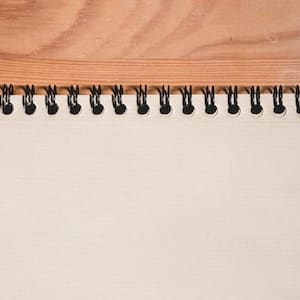draw off: Idiom Meaning and Origin
What does ‘draw off’ mean?
The idiom "draw off" means to remove or extract a liquid or substance from a container or source. It can also refer to diverting someone's attention or focus away from something.

Idiom Explorer
The idiom "pull away" means to move backwards, leave or break free from a situation or person. It often implies a sudden or forceful action that creates distance or separation.
The idiom "fork off" means to divert or deviate from a path, plan, or topic of discussion. It implies the act of taking a different direction or pursuing an alternative course of action.
The idiom "drift apart" means to gradually become less close or connected to someone, often due to a lack of shared interests or time spent together.
The idiom "draw the short straw" means to be chosen or assigned for an undesirable task or outcome, typically due to bad luck or random selection.
The idiom "draw the line" means to set a limit or establish a boundary beyond which one is unwilling to go or accept.
The idiom "drawing card" refers to something or someone that attracts a large audience or customers.
The idiom "draw in" means to cause someone to become involved in a situation or to attract someone's attention. It can also refer to the shortening of daylight hours during the fall and winter seasons.
In idiomatic use, "draw fire" means to attract criticism or negative attention. This metaphorical phrase originates from the idea of drawing enemy fire in a military context where soldiers put themselves in danger to distract attention from their comrades.
The idiom "draw a line" means to set a limit or establish a boundary, indicating the point where one thing ends and another begins.
The idiom "down the drain" means that something has been wasted or lost, often due to a mistake or failure.
Unraveling 'Draw Off''s Secrets
Draw off is an idiom that is used in everyday spoken and written language. It means to take something out of a container or a source. This can refer to physically removing liquid from a container, such as drawing off milk from a cow or drawing off water from a well. It can also be used metaphorically to describe the act of separating or taking away something intangible or abstract, like drawing off funds from a bank account or drawing off attention from a specific topic.
One common usage of the idiom "draw off" is in the context of sports. In team sports, players may try to divert the attention or focus of the opposing team in order to create an advantage for their own team. For example, a basketball player may try to draw off defenders by making quick and deceptive moves to distract them from guarding a teammate who is in a better position to score.
The idiom "draw off" is also used in business and finance. It is often used to describe the act of taking money or resources out of a particular venture or investment. This can refer to the withdrawal of funds from a bank account or the divestment of assets from a company. In this context, "draw off" emphasizes the notion of separation or extraction, highlighting the removal of financial resources from a specific source.
Additionally, "draw off" can be used to describe the process of diverting attention away from a particular topic or issue. This can be seen in various settings, such as politics, where individuals or groups may employ tactics to draw off attention from controversial or sensitive matters by shifting the conversation towards other subjects.
Another related idiom is "fork off." This idiom means to separate or diverge from a main path or course. It can be used in various contexts, such as describing the splitting of a road or the divergence of opinions. In relation to "draw off," "fork off" can be seen as a similar concept of separation or diversion, but with a specific emphasis on branching out or diverging.
Another related idiom is "pull away." This idiom means to disengage or distance oneself from a person or situation. It can refer to physically moving away or emotionally detaching. In the context of "draw off," "pull away" can be seen as a similar concept of separation, but with a focus on the act of pulling away or disengaging.
Another related idiom is "chase off." This idiom means to drive away or force someone or something to leave. It can be used to describe physically chasing away animals or to describe getting rid of unwanted visitors or distractions. In relation to "draw off," "chase off" can be seen as a similar concept of separation, but with a specific emphasis on actively driving away or removing.
Another related idiom is "draw in." This idiom means to attract or invite someone or something to come closer. It can be used in various contexts, such as describing the act of attracting customers or the act of luring someone into a conversation or situation. In relation to "draw off," "draw in" can be seen as a contrasting concept of attraction or invitation, focusing on bringing someone or something closer rather than separating or diverting.
Lastly, another related idiom is "branch off." This idiom means to split or divide into separate parts or directions. It can be used to describe the splitting of a tree branch or the division of a company into different departments. In relation to "draw off," "branch off" can be seen as a similar concept of separation or diversion, but with a specific emphasis on the act of branching out or dividing into separate parts.
Example usage
Examples of how the idiom "draw off" can be used in a sentence:
- She used her skills to draw off the attention of the guards while the others escaped.
- The teacher drew off the students' focus from the test by telling a funny story.
- The magician drew off the audience's attention by performing a spectacular trick.
More "verb" idioms



